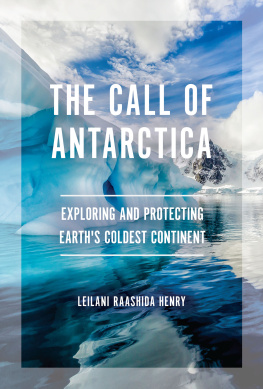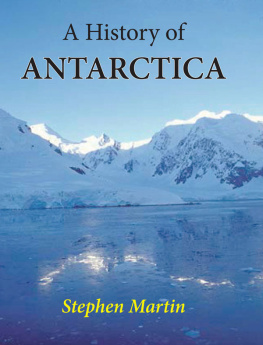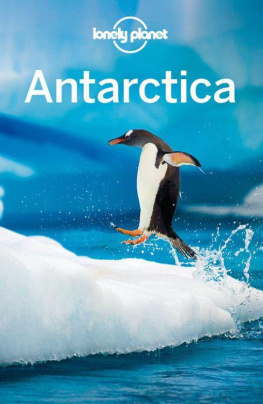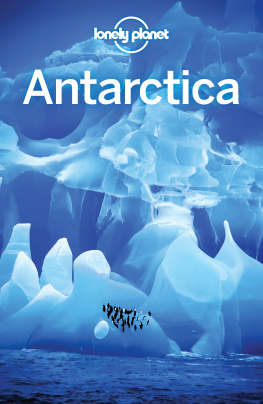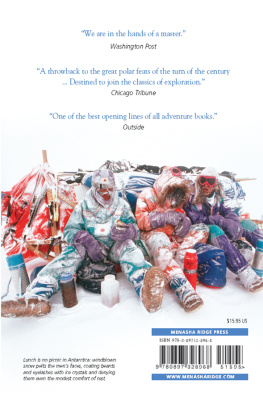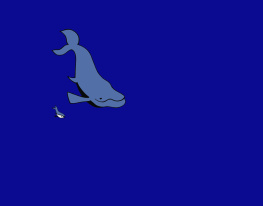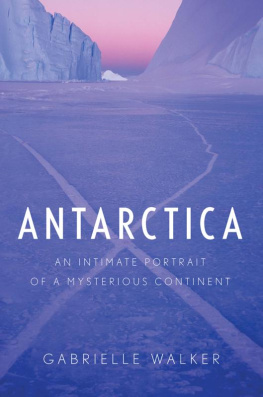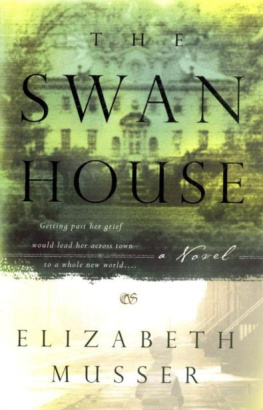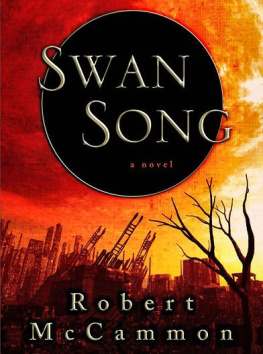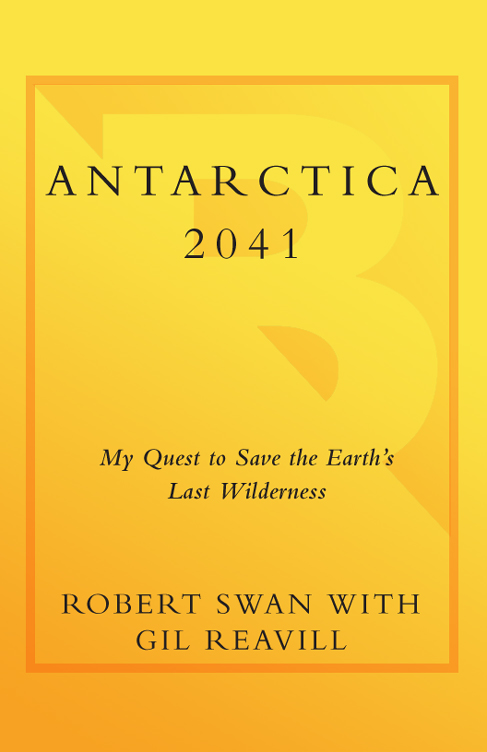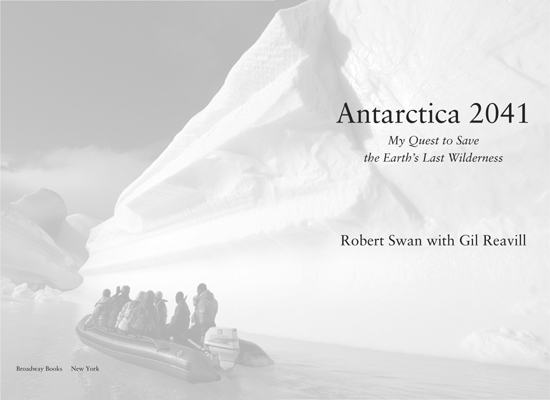Antarctica 2041
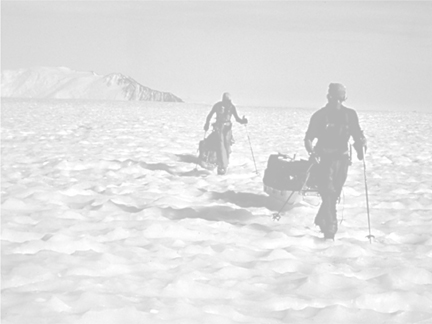
This book is dedicated to the generations
that came before and the generations to come after
Margaret Em Swan,
age ninety-four,
and Barney Swan,
age fifteen
And to Peter Austin Malcolm (19562009),
an Immortal among the Immortals
without him our dream would never
have taken shape
We are all adventurers here, I suppose, and wild doings in wild countries appeal to us as nothing else could do. It is good to know that there remain wild corners of this dreadfully civilized world.
R OBERT F. S COTT
The world ought to have the sense to leave just one place on earth aloneAntarctica.
P ETER S COTT
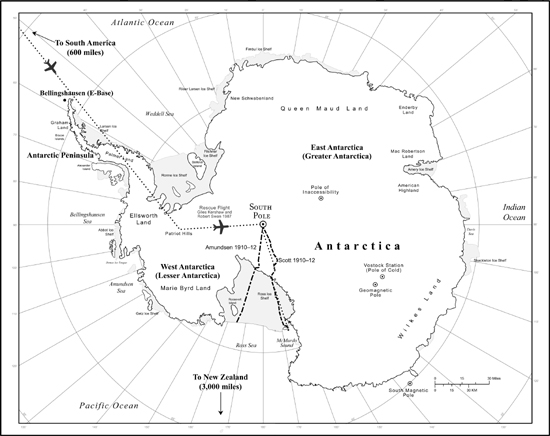
Antarctica 2041
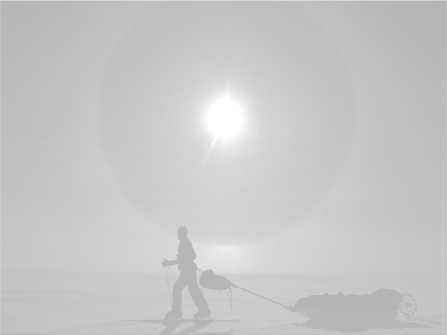
The Beardmore
I n the Antarctic summer of 1985 I found myself standing at the inland margin of the Ross Ice Shelf, a crevasse-riven, glacier-fed formation about the size of France. A France without baguettes and cathedrals. A totally Paris-less France.
The ice beneath me ran down a thousand feet. Underneath that, the Bible-black darkness of a cold, unexplored sea.
There were reasons why the Ross Sea remained unexplored. A New Zealand fishing boat once pulled from its waters a colossal squid (Mesonychoteuthis hamiltoni, to distinguish the species from its smaller cousin, the merely giant squid) more than thirty feet long and weighing over a thousand pounds. Thats what they had down there, that and God knows what other creatures. Perhaps only Captain Nemo could have handled it.
To report my location on the Ross Ice Shelf above the Ross Sea, in other words, is another way of saying that I was in the middle of frozen nowhere, perched on the brink of an enormous nothingness. A silence deep with a breath like sleep is how one man who died there put it.
Early Antarctic explorers called the ice shelf the Great Ice Barrier, in honor of the hundred-foot-high vertical wall where it meets the sea. But for those early explorers, and for me, the barrier acted more as a road, an immense, human-dwarfing, windswept road, but nevertheless a well-recognized path into the interior of the continent.
We followed In the Footsteps of Scott, as our expedition was called, tracing the trek to the South Pole of the great British explorer Captain Robert F. Scott.
As I stood at the edge of the barrier, the question I pondered was pretty basic. Why in heavens name would anyone want to enter the interior of Antarctica? Why would anyone freely choose to experience the most inhuman landscape available to us? Its a boogeyman of a place, good for scaring the wits out of homebodies.
The highest, driest, windiest, coldest place on earththats a formulation that seems by law to appear in every single piece of writing about Antarctica (the most memorable example: a book coauthored by Leonardo DiCaprio and Mikhail Gorbachev).
No one had even laid eyes on the place until 1820. No one wintered over for a full year until 1898.
Why was I there?
With my thoughts jangled and my inner clock going haywire since the midnight sun rendered night into day, I realized I had no answer to that basic question. No answer at all.
I was twenty-nine years old. With two other team members, Roger Mear and Gareth Wood, I had just spent four weeks walkingtrudging, struggling, sledging all our supplies ourselvesacross the Ross Ice Shelf. We were ants on an ice cube the size of France.
Our ultimate goal, that of reaching the South Pole, now appeared a vain hope. By our calculations we were fifty-eight days away from 90 degrees south. Our food supplybiscuits, sausage, soup dosed with vegetable oil for added calorieswas good for another fifty-five days.
We were already starving. Since we hauled our own provisions for the journey, we had calculated our supply down to the gram: 5,200 calories per day per man. It was not enough. As we labored over the ice cube, our bodies were eating themselves. My weight plummeted: the South Polar diet, we called it.
Controlled lab research has demonstrated not only physiological but also psychological effects of semi-starvation: a tendency on the part of the hungry toward the so-called neurotic triadhypochondria, depression, and hysteria. The triad hit me hard. I imagined symptoms, felt listless and low, and experienced periodic spikes of panic over our situation. We gave off the characteristic ketone odor of the starving vertebrate. I could smell it on myself as I wandered a short distance from the camp, late on that bright-as-day evening on the barrier.
South of us, barring our way to the pole, towered the twelve-thousand-foot peaks of the Queen Alexandra mountains. The range braced the mighty Beardmore Glacier, over a hundred miles long, the second-largest glacier in the world. To get to the pole, we would have to climb the Beardmores immense ladders of smashed glass, as it was described by Ernest Shackleton, the man who discovered it.
In the gross emptiness of the ice shelf, our camp appeared puny and insignificant, a tent with three ice sledges dumped over next to it. Robert F. Scott called this place, where he was nailed by a ten-day blizzard, the Slough of Despond. Miserable, utterly miserable, he wrote in his journal. Slough refers to an allegorical place of despair in The Pilgrims Progress. The name joins other colorful waypoints on the path to the pole, such as Shambles Camp, Devils Ballroom, and Butchers Shop.
Our expedition had broken down. Harsh conditions, personality clashes, and, in my case, devastating self-doubt left us marooned in the most inhospitable environment on the planet. I knew by now that Roger Mear and Gareth Wood were hardly speaking to each other. The only thing they seemed to agree on was that they didnt much like me.
A half decade of planning, raising funds, and untangling problems of supply and transport had come down to thisthree squabbling humans just a couple of arguments away from freezing to death. There was no hope of rescue. We had no radios. We were unaware of any human presence within four hundred miles of us. At that moment I was absolutely, positively convinced that my life had ended. More distressing stillif thats possiblemy dream had ended.
I had scratched and clawed my way to this point. I had buttonholed famous mentors and explorer-scions such as Sir Peter Scott, Lord Edward Shackleton, Sir Vivian Fuchs, Lord Hunt, the Royal Geographic Society, and Jacques Cousteau. I had borrowed enormous sums on the basis of no more than my smile (my smile was in debt to the tune of $1.2 million). Then I slogged on ice-numbed feet to this forlorn point in front of the Beardmore, all in an effort to honor Scott and Shackleton, my boyhood heroes, by walking to the South Pole.
Why? For what purpose? To fail? To die?
Roger Mear was one of the worlds foremost mountaineers. Gareth Wood, also an accomplished mountaineer, was a meticulous organizer and logistics whiz. What was I? I was a novice. I wasnt a mountaineer or even an outdoorsman. And I was a foolhardy novice. I had mounted an expedition to the South Pole without ever having really been camping before.


